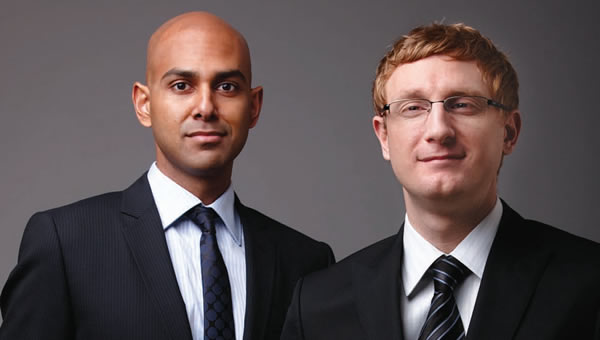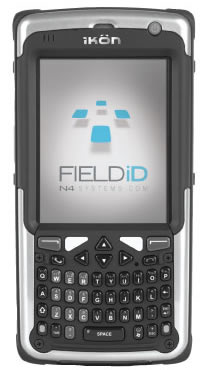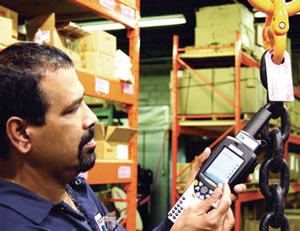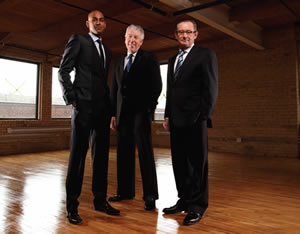An Entrepreneur by Design

Somen Mondal is a man with a plan. Virtually every step along the way to his role as cofounder and CEO of an already successful start-up seems to have been carefully planned. He may not have had a list with every step spelled out, but if he had, it might have looked something like this:
- Find a like-minded business partner:
- Complete MBA to hone business skills and expand network of contacts:
- Come up with a business concept:
- Leverage QSB connections to get advice and financial backing:
- Develop product offering and sell, sell, sell:
- Carve out a previously untapped niche and become the industry leader:
- Expand operations to meet growing demand:
All that remains is the end game, and even that is on his ‘list of things to do.’
This is the story of how a highly focused and energetic graduate of the MBA Class of 2006 realized his vision of launching a successful start-up with a little help from some friends with a QSB connection.
 The Business Partner
The Business Partner
After graduating with a Computer Engineering degree from the University of Toronto in 2002, Somen followed a fairly typical path. He accepted a position writing customized software programs for clients of a Toronto consulting firm. It was there that he met Shaun Ricci, a Computer Science grad (University of Guelph),who occupied the cubicle next to Somen’s. It didn’t take long for the two of them to realize a basic truth: “What we were making was a fraction of the rate that the company was charging for our services,” Somen recalls. “Shaun and I had the same objective:We didn’t want to work for someone else for the rest of our lives.” So the two formed a partnership and began taking on independent consulting projects in their spare time. Within 12 months, N4 Systems was born. However, the partners’ objective wasn’t to create yet another computer consulting company. From the outset, Somen and Shaun were on the look-out for a product or service that could be developed into a business.
The MBA Experience
While juggling his day job and N4 Systems responsibilities, Somen realized that the status quo wasn’t sustainable. “We had already started the business, but I knew that we didn’t know enough about business to take it to the next level. An MBA would give me the solid business foundation that we would need to move forward. I also knew that a major benefit of doing an MBA was access to an alumni network that I could tap into. It was a major selling point for me, and one of the main reasons I chose Queen’s.”
His 12months in the program were everything he had hoped for. In addition to covering such business fundamentals as marketing, finance and strategy, he learned about raising capital, structuring a financing deal and, especially, teamwork – the hallmark of a Queen’s MBA.
“They’re like bar codes on steroids,” says Somen of the RFID chips integral to N4’s product.
 Field ID-equipped scanner in action
Field ID-equipped scanner in action
The Business Concept
Somen was immersed in his MBA studies and working on N4 Systems part-time when the business opportunity he and Shaun had been looking for presented itself. A customer, Unirope Ltd., came to N4 looking for a solution to an operational problem. The company was in the business of conducting equipment inspections for their clients who needed to document compliance with safety and other government regulations. Unirope inspectors went to their clients’ sites, identified a piece of equipment, consulted a manual containing that equipment’s inspection standards, recorded their inspection notes on paper, then manually filed the paperwork. The entire process was slow, inefficient and generated massive amounts of paper.
Somen and Shaun proposed a simple but innovative solution. Why not enable an inspector to use a handheld computer to read a Radio Frequency Identification (RFID) chip – those increasingly ubiquitous little black tags, slightly longer than a piece of Chiclets gum, stuck on electronics packaging, for example. “They’re like bar codes on steroids,” Somen laughs. With RFIDs affixed to a piece of equipment, inspectors could immediately identify its make, model and serial number and use a checklist of government safety criteria unique to that equipment model. Using the checklist, the inspector could enter and save his observations into the mobile device, which would wirelessly upload the inputted compliance data to a Web based system where it could be quickly retrieved via the Web. Applying this concept, the duo designed a software program they dubbed Field ID that would save inspectors time by allowing them to identify equipment quickly and determine which safety standards to use.
For companies like Exxon Mobile or British Petroleum that manage huge inventories of equipment, having accurate, easily accessible compliance data would be more than just convenient. Governments require all companies to keep safety records that can be audited at any time. In the event of a workplace accident involving a particular piece of equipment, compliance records are needed immediately to determine whether lax inspection or improper maintenance was a factor in the mishap.
The scope of the business opportunity soon became clear. Not only would Unirope benefit, but companies around the world subject to compliance audits would have a similar pressing need for a system such as Field ID, the partners believed.
The Queen’s Connection
One of the highlights of Somen’s MBA experience was meeting then-QSB Entrepreneur-in-Residence Paul Hyde in 2005. The founder of Kasten Chase Applied Research of Mississauga had grown the company into a leading systems provider for the global financial services industry. Under Paul’s leadership, the company emerged as an industry leader; in 2000, it was the top performing stock on the Toronto Stock Exchange. Paul retired as President and CEO in 2003 but continues to serve as a corporate director of several companies, and is currently a Principal of venture investment firm Temple Mill Ltd. A strong supporter of Queen’s and the business school, Paul and Greg Cochrane, MBA’74, together with their families, contributed to the establishment of the Queen’s School of Business Centre for Business Venturing (Inquiry cover story, Spring 2002).As Entrepreneur-in-Residence, Paul regularly met with students one-on-one to discuss new venture ideas and share his vast experience.
It didn’t take long for Somen to drop by Paul’s Goodes Hall office for a chat. The talk turned to Somen’s business aspirations as he described N4’s business plan and revolutionary new product. He explained the operation of the Field ID system, that the handheld device was in development, and that the company had landed one major contract.
One of Paul’s first pieces of advice was for Somen to read Crossing the Chasm, by Jeffrey Moore. He explained the author’s theories about the technology adoption curve.
“Paul described how a company enters a market, and, if there’s nothing like its product, how it needs to be discovered by the early adopters, who start the buzz, and then others jump on board. We were a prime example of a company poised to cross that chasm and achieve success.”
His second piece of advice was to start selling. “I told Somen that having just one person interested in their software wasn’t enough to demonstrate that their product could sell,” Paul recalls. “They needed to sign up other early adopters and then they’d know that there was a market for their product.”
The investors’ view: “We’re not investing in your technology, we’re investing in you.”
 Big projects, big safety compliance needs – N4’s potential clients span the globe
Big projects, big safety compliance needs – N4’s potential clients span the globe
The Big Sell
After earning his MBA, Somen landed a job as an associate at a major Canadian bank in Toronto, still working on N4 in his spare time. This, too, was all part of the grand design. Working at a bank enabled him to learn about the world of finance – something N4 would need to reach the planned ‘next level’. He kept in touch with Paul and plugged away at his own company after hours, but within months he decided to focus exclusively on N4 Systems. He quit his bank job, rented an attic in downtown Toronto and, with Shaun, concentrated on selling Field ID full time. This included travelling to a trade show in Palm Springs, California – their first showcase. “We were so confident that we’d land sales that we had order forms printed and just expected people to line up to buy because our product was so great,” Somen laughs. “What we learned is that it’s really difficult to sell software, especially to a crowd that had never heard of using software to simplify their inspection processes.”
They left Palm Springs without any deals signed but with a lengthy list of potential customers. In the ensuing months, they cold-called every one of them. By the end of 2007, they had five customers signed up.
The Queen’s Connection 2
Paul had continued to offer advice and encouragement as the partners embarked on their major sales push. Now, with confirmation of their fifth customer, Paul came on board as the company’s lead investor. So convinced was he of the company’s potential, Paul assembled a team of three other well-connected backers to invest in the company. They were Greg Cochrane, General Partner at Graoch Associates, QSB Advisory Board member, and a longtime investment partner of Paul’s; Rob McEwen, Chairman and CEO of US Gold and Lexam Explorations and the founder and former Chairman and CEO of Goldcorp; and Mike Stein, the founder and chairman of Cap Reit, Canada’s second-largest apartment real estate investment trust.
Greg recalls being immediately impressed by Somen’s earnestness, energy and focus. “He was absolutely committed to this business and this idea,” he says.
“Failure was not going to be an option for Somen.” Paul concurs. “In a startup, energy is hugely important; it’s what drives people, even at their weakest moments, and allows them to chase their dreams. That’s one of the things Somen had, a vision and a dream, and he had the thoughtfulness to develop his business in a meaningful way.”
“We were thrilled that we didn’t have to go to an outside source of funding, that we were able to rely on private investors,” Somen explains. “For an entrepreneur, one of the objectives is to preserve equity. When you end up with venture capital funding, the VCs tend to come in and take over. What worked for us was that Paul and the other investors believed in us. Their perspective was, ‘Who better to run the company than the people who are passionate about it, who are willing to work 24 hours a day to build it?’ It was important to us that our investors had that level of trust in us.”
During one of their early meetings, Greg summed up the investors’ view: “We’re not investing in your technology, we’re investing in you.”
 Inspecting N4’s new offices before moving day – Somen and investors Greg Cochrane (centre) and Paul Hyde
Inspecting N4’s new offices before moving day – Somen and investors Greg Cochrane (centre) and Paul Hyde
The Industry Leader
Since it was first launched, Field ID has evolved beyond a simple field identification and inspection technology targeted mainly at third party inspection companies. Now it’s a comprehensive Web-based information system that connects users in much the same way that Facebook, LinkedIn and other social-networking sites operate. Called the Safety Network, it allows subscribers to create lists of ‘friends’ that might include third party safety inspection companies, equipment manufacturers or distributors.
“If you add a ‘friend’ to your Safety Network, you gain access to all data from that friend that applies to your safety and compliance situation,” Somen explains. “It’s entirely Web based, so users don’t have to maintain any computers or databases – all the data and hardware resides on N4 Systems’ servers.
“We’ve gone much further than just providing an inspection system. We’ve essentially created an entire new function that we’ve labeled ‘Inspection and Safety Compliance Management’, or ISCM. We created the acronym that’s now being used in the industry, and we provide that service to safety managers around the world.”
The other critical aspect of the business model is licensing the software to users. Rather than charging a one-off fee, customers pay an ongoing subscription fee in order to own a license for the software. They can load that software on their choice of handheld devices either provided by N4 or purchased from their own supplier. “Selling subscription-based software licenses provides the highest margins and enables us to maintain a lean operation,” explains Somen. “Software licensing is how modern companies like Salesforce and NetSuite make the bulk of their revenue, so it’s not a bad business model to follow.”
For the Safety Network to gain traction, N4 has to bring manufacturers on board and have them agree to affix Field ID chips on the equipment they produce. As of February 1, two major manufacturers have signed on: crane and hoist manufacturer Columbus MacKinnon and MSA (Mine Safety Appliances), maker of safety harnesses, hard hats and other safety devices. The objective is to get all other makers of safety equipment to adopt Field ID as the standard. The benefits to their clients, the end users of the equipment, are so compelling that Somen is confident that becoming the industry standard is just a matter of time.
The Expansion
From an attic downtown, to an office across the street from MuchMusic, to a 4,000-sq-ft office in downtown Toronto opening this spring, N4 Systems is definitely on the move and on the way up. Its employees are committed to the company and excited about its growth, according to its CEO.“I think we’ve been successful so far because we have a great enthusiasm for what we do,” explains Somen. As for what will constitute future success, “We’ll know we’ve reached the top of our industry when we’re the first and foremost choice of Fortune 500 companies for inspection and safety compliance management,” Somen says.
When it comes to long-range plans, for once Somen doesn’t have a ready answer. “I’m really just focussed on building the business and making it the best it can be. It’s been four years of 12-hour days, but loving what I do keeps me motivated. If I look way down the road, I could see myself doing something like what Paul does. I’d like to help other companies grow, give advice and guidance but keep my hands off the day-to-day stuff and trust the people I’ve invested in to make a success of their venture.”And he’s still just 29. He smiles. “It would be nice to be in that position, to pay it forward to the next entrepreneur with a big idea.”
Who knows? Maybe that next entrepreneur will be another young QSB grad with a big idea and a passion to succeed.
